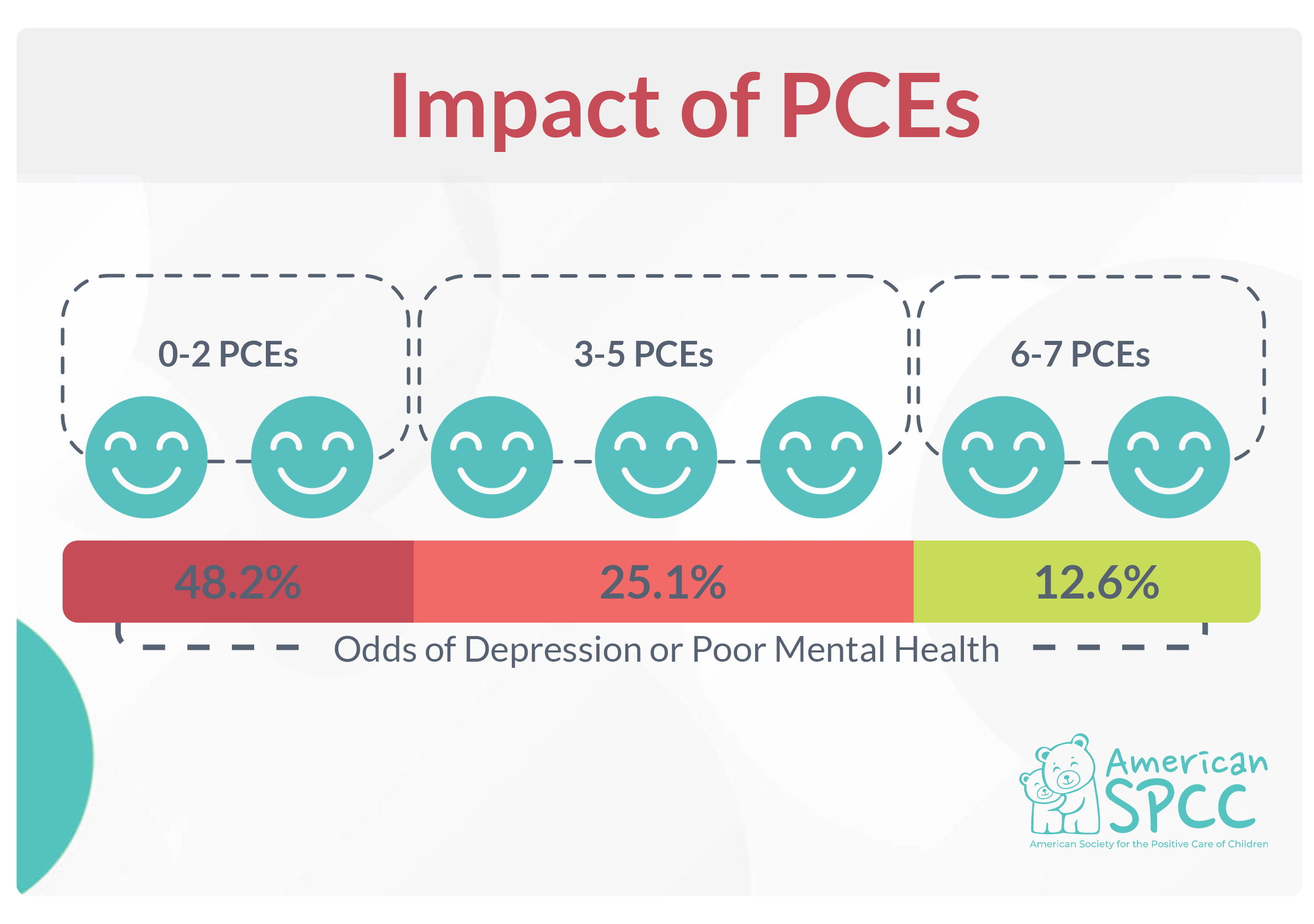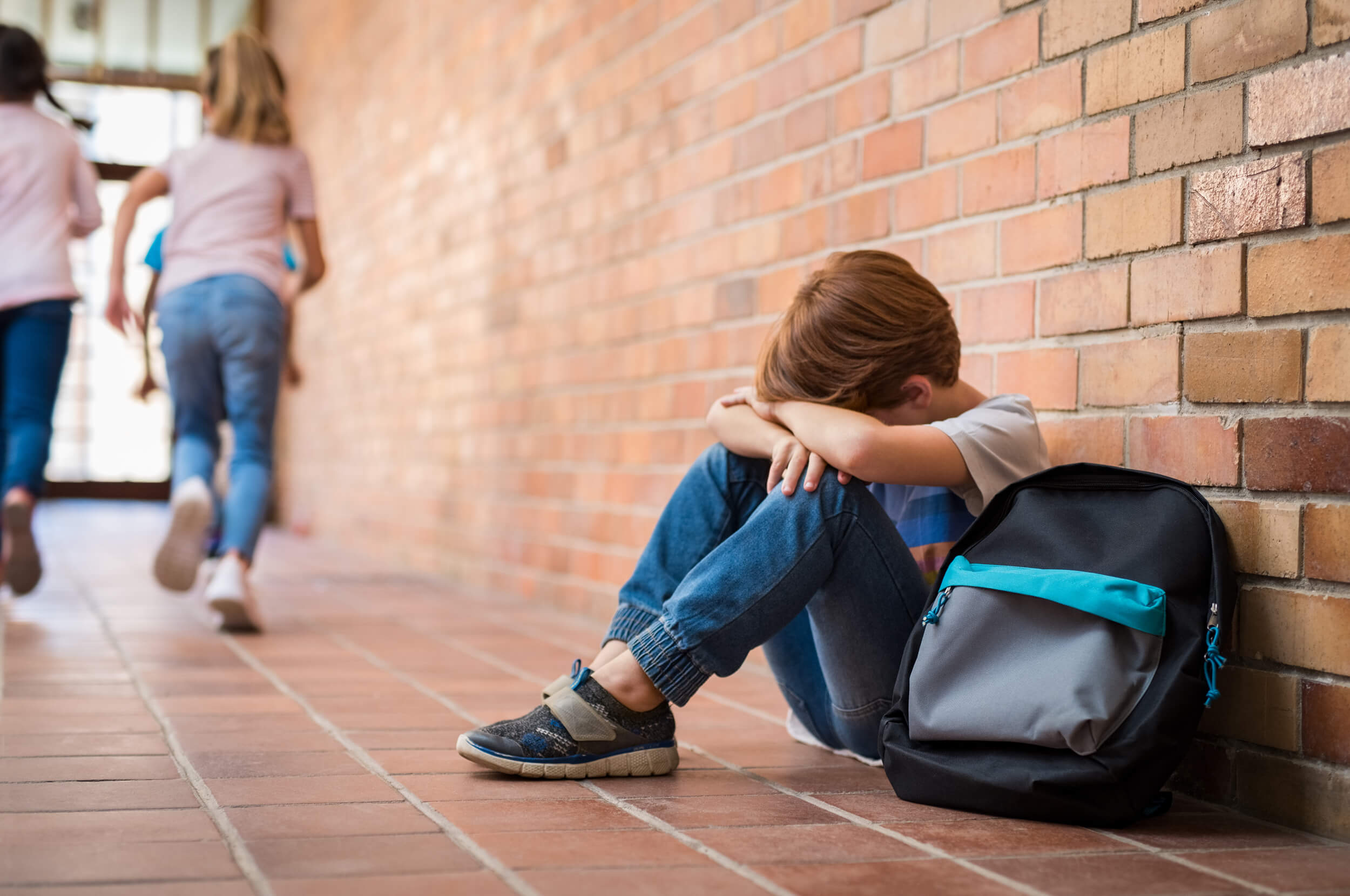Positive Childhood Experiences
How to reduce the impact of stress for children
What are Positive Childhood Experiences?
Positive Childhood Experiences (PCEs) stem from safe, stable, nurturing relationships and environments, and have the power to prevent or protect children from traumatic events, toxic stress, or Adverse Childhood Experiences (ACEs).
These positive experiences can happen both in and outside the home. Parents, caregivers, relatives, teachers, community members, and neighbors can create environments, experiences, and relationships that allow children to feel protected and cared for.
In recent years, the concepts of PCEs, as well as ACEs, have garnered significant public attention as more childhood development advocates began talking about the growing body of research linking childhood trauma to negative long-term health effects and positive childhood experiences.
The Impact of Positive Childhood Experiences
There is a growing body of research that states PCEs can be statistically linked to good emotional and mental health in adults.
Increasing positive childhood experiences builds resilience in kids who have experienced trauma, and those who may in the future. The relationship between PCEs in childhood and good mental health in adults is dose-responsive, meaning the more positive experiences that individuals had, the more likely they were to report few or no issues of adult mental health challenges.
The more PCEs a child has, the more likely they are to be healthy and resilient.
Individuals with 3-5 positive childhood experiences had 50% lower odds of adulthood depression or poor mental health than those with 0-2, and individuals with 6-7 reported PCEs, the highest number of reported positive childhood experiences, had even lower odds of adulthood depression or poor mental health — 72% lower — when compared to those with the least number of reported PCEs.

How to Integrate Positive Childhood Experiences Into Your Family

Play
Playtime for children is about much more than having fun. Allowing time for children to freely play within safe environments is a vital part of building healthy, happy brains. When life gets busy or challenging for adults, the importance of play can often be overlooked. Simply remembering that play is a priority each and every day can go a long way toward creating positive experiences for children.

Predictable, Nurturing, Environments
Kids, especially those who are younger, thrive on predictability and the sense of security it provides. This can take on many forms – whether it’s part of their home environment, daily schedules, or the behavior of adults taking care of them. No parent will ever be perfect, but the more adults behave in predictable, nurturing ways that put a child’s needs first, the safer that child will feel.
Remaining calm through chaotic moments can be one of the best skills a parent or caregiver can work on. This means minimizing shame, yelling, and anger while listening, then helping children label their big emotions instead of trying to stop or ignore them. Just like an adult wouldn’t yell at a friend for being sad, parents should teach their children that it’s normal to be sad, angry, embarrassed, or any other emotion that’s difficult to process. This helps build crucial social-emotional skills that will shape how children experience their lives for years to come.

Recognition, Praise, and Acceptance
One-on-one conversations and playtimes can also serve as an opportunity to recognize a child’s unique characteristics, strengths, and accomplishments. When a child is consistently accepted for who they are and acknowledged for positive achievements such as being kind, brave, or hard-working, the more pride and self-esteem they will feel for themselves.

The Support of Other Adult Friends
Parents and caregivers cannot do it all when it comes to creating the sort of nurturing, accepting environments that all children deserve. Inevitably, children will interact with other places and people throughout their lives – all of which have the potential to create positive or negative experiences. That’s why it’s important for all adults in a child’s life to take their roles seriously and use the same techniques mentioned above to become a trusted resource for growing children.

Other Protective Factors
According to the CDC, protective factors are “individual or environmental characteristics, conditions, or behaviors that reduce the effects of stressful life events.” When protective factors are present, they increase a child’s ability to avoid risky behavior while promoting social-emotional competence – tools that will help them thrive later in life.
Such protective factors include a child doing well in school, a parent having steady employment, living in a community with access to quality services, and several others. Learn more about the types of protective factors individuals and communities can strive to create here.
By being here, you’re impacting generations.
American Society for the Positive Care of Children is dedicated to preventing child maltreatment and raising awareness of the lifelong impacts of adverse childhood experiences by providing parents with the skills, tools, and educational resources that build their confidence and capacity as caregivers and create more positive childhood experiences. We’re able to continue providing resources like these free of charge to nearly 1,000,000 families who rely on us annually thanks to the generosity of our supporters.
Take action to reduce Adverse Childhood Experiences for the Next Generation Today.
Related Topics

Take The PCEs Quiz

Positive Childhood Experiences as Protective Factors

Take The ACEs Quiz

What Are ACEs?
